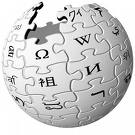Free eye surgery in Lusaka Clinic
Photo’s and text by Harrison Tuntu in Lusaka, Zambia. This article is made possible in partnership with LG.
A team of Korean eye doctors was in Zambia at the Lusaka Eye Clinic to conduct free eye surgery services to 50 patients. “I could not see, but after the operation I regained my sight.”
The operational team of 16 consisted of two doctors, three nurses and one optician, while the rest were volunteers.The program commenced on Wednesday May 14th and came to a close on Friday the 16th of May. 50 Zambian patients were successfully operated. Doctors Cho Jeong Ik said most of patients at the eye clinic had the same problem, although the cause varied. He explained that the team was conducting a surgical removal of the Cataract from the eye.
“I regained my sight”
Mr. James Kameta, a Zambian citizen, said he was blind and had to be aided to reach the Lusaka Eye Clinic. He explained that he had struggled with eye problems from the year 1980 and suspected the problem had been caused by high blood pressure and diabetes.
Mr. Kameta said he even went as far as Tanzania to access treatment but could not continue as he did not have enough funds. He was glad that the team of Korean Doctors treated him free of charge and commended them saying they were professionals. “I could not even feel any pain when these people were conducting the operation on me. I could not see but after the operation, I regained my sight,” he said.
Dr Jeong noted that eye problems were a source of concern not only in Zambia but Africa as a whole, hence the need to address the problem. According to Dr Jeong, his team decided to put up free eye camps in Zambia as part of its program to help people with eye problems in the Southern Africa region. He explained that there were two groups of which one went to Swaziland and Mozambique while the second one is the one that was in Zambia.
Initially, the program was meant to commence on Monday, the 12th May but was delayed as the Zambian authorities had not yet awarded the doctors a permit. The team which targeted about 100 people failed to reach the target due to the delay but successfully managed to operate 50 people. Nonetheless, in addition to the 50 patients operated on by the Korean Doctors, Zambian doctors performed operations as well, bringing the number to a total of 112.
Three Zambian doctors participated in the exercise namely Michael Stewart, Eustace .A. Penniecook and Sydney Mwala. Dr Penniecook expressed gratitude to the team of Korean doctors whom he said were very professional. “They have done a very good job and we are grateful to them. They have different techniques and we hope to learn from them”, he said.
Commenting on the gravity of eye problems in the country, Dr Pennicook said very few people were able to access treatment before the condition worsened as they are ignorant. He explained that in countries such as the United States of America, in a population of 1 million people, at least, 4000 were able to access treatment while in countries like Zambia, less than 2000 people are able to access treatment in a population of 1 million.
The operations were funded by two organizations namely the Standard Chartered First Bank and the LG Electronics. However, some of the volunteers also made contributions to help in the smooth flow of the programme. The team could not state whether or not it would come back to Zambia for a follow up but expressed gladness that the operations it had carried had proved successful.
Mr. Samson Chibuluma an 84 years old Zambian who was operated on said he started having eye problems in 2004 and accessed treatment but his other eye got affected.
Mr. Chibuluma said the problem affected his sight and was not able to see properly but was cured by the Korean doctors.
See the photos
We are pleased to announce that the report and photos were made by our local team in Zambia. Way to go guys !





